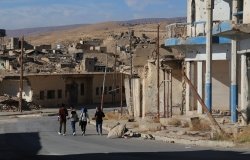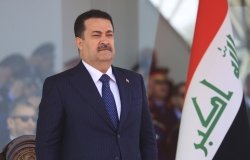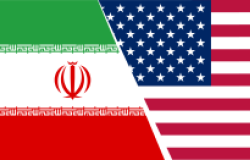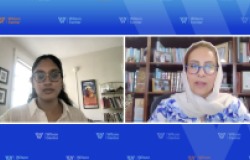Post-election Iraq: What's Next for Women
Hanaa Edwar, General Secretary, Iraqi Al-Amal Association; Founder, Iraqi Women's Network. Basma Fakri, Co-founder and President, Women's Alliance for a Democratic Iraq. Zakia Hakki, Member, Iraqi National Assembly; Former Member, Constitutional Drafting Committee. Mishkat Al Moumin, Former Minister of Environment, Iraqi Interim Government. Ala Noori Talabani, Member, Iraqi National Assembly; Co-founder, Women for a Free Iraq; Co-founder, Iraqi Women's High Council; Active Member, Kurdistan Women Union.
Overview
Hanaa Edwar, General Secretary, Iraqi Al-Amal Association; Founder, Iraqi Women's Network.
Basma Fakri, Co-founder and President, Women's Alliance for a Democratic Iraq.
Zakia Hakki, Member, Iraqi National Assembly; Former Member, Constitutional Drafting Committee.
Mishkat Al Moumin, Former Minister of Environment, Iraqi Interim Government.
Ala Noori Talabani, Member, Iraqi National Assembly; Co-founder, Women for a Free Iraq; Co-founder, Iraqi Women's High Council; Active Member, Kurdistan Women Union.
This event was cosponsored with The Initiative for Inclusive Security.
Zakia Hakki framed the issue of women's rights in Iraq. She said that women's rights are threatened by insurgents. Women composed 32% of the current parliament—but it is also important to look at what sort of women are in office. She discussed her efforts to build a caucus of women and sympathetic men in parliament, and asked for the support of the "international sisterhood."
Hakki also discussed the legal aspects of women's campaign for rights. In particular, she focused on the need for women to capitalize on the constitutional review committee demanded by the Sunnis to strengthen provisions in the constitution that guarantee women's rights and to reintroduce an article incorporating international agreements into the constitution. She also argued for the preservation of the 1959 Iraqi family law, which she described as the product of a long fight by women.
Mishkat al-Moumin discussed women's strategies and tactics. She said that women were working together to form a bloc across sectarian lines, and that women could therefore be a force for unifying Iraq, and she predicted that, without women involved from the beginning, Iraq would marginalize minorities and devolve into dictatorship. Al-Moumin also discussed women's two-pronged strategy: focusing first on constitutional amendments and then on adopting the 1959 family law code at the federal level. She warned that adopting multiple family law codes, as the constitution suggests, could discourage cross-sectarian marriage and further divide the country.
Basma Fakri explained her role as an Iraqi-American. She talked about her efforts to create a network of Iraqis outside the country that Iraqis could leverage when necessary, and about who could help Iraq from outside the country.
Hanaa Edwar asserted that women's participation in Iraqi politics had become "inevitable." Women suffered greatly under Saddam, and they have come a long way since 2003, Edwar said, but there is still a long way to go. She too focused on the need for constitutional reform and the preservation of family law. She decried the notion that the constitution already adequately protects women's rights—it suffers from "many omissions," she said—and argued that it should guarantee many other rights, such as the right to choose a husband. Edwar characterized the 1959 family law as under attack, based on Article 39 of the constitution, which allows Iraqis to choose what family law they will be governed by. She emphasized that the 1959 law was based in shari'a but also protective of women's rights, and so should be acceptable to all.
Edwar also discussed the role of NGOs and civil society, arguing that they had to help empower and train women, raise awareness of women's issues, and guarantee the implementation of laws to make women's rights a reality in Iraq. She stressed that this required the creation of a "new mentality" for Iraqis.
Ala Noori Talabani contended that women were key to a peaceful Iraq. She cautioned that Iraqis were not accustomed to democracy—most of her fellow parliamentarians were not qualified. She argued that women need to take a more active role in policy making, and expressed optimism that they will, in time. She called for the creation of a High Commission for Women's Rights to mirror the commission on human rights outlined in the constitution, and called for integrating women into the police force. Finally, Talabani cited the example of Kurdistan as proof that Iraqis could change their mindset, and expressed hope that they would.
Drafted by Evan Hensleigh
Hosted By

Middle East Program
The Wilson Center’s Middle East Program serves as a crucial resource for the policymaking community and beyond, providing analyses and research that helps inform US foreign policymaking, stimulates public debate, and expands knowledge about issues in the wider Middle East and North Africa (MENA) region. Read more
Thank you for your interest in this event. Please send any feedback or questions to our Events staff.










